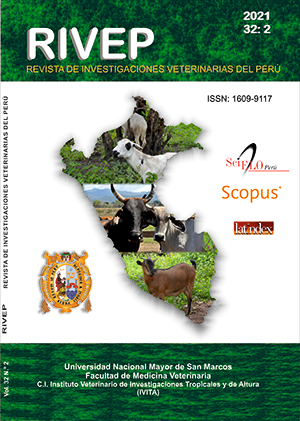Role of the nuclear factor kappa Beta ligand (RANKL) in osteoarthritis and oseteoclastogenesis in thoroughbred horses. Use of anti-inflammatory drugs.
DOI:
https://doi.org/10.15381/rivep.v32i2.20009Keywords:
RANKL, osteoarthritis, equine, osteoclastogenesis, inflammationAbstract
Osteoarthritis (OA) is one of the main conditions that affects the performance of sports horses. Early diagnosis of the disease is relevant in its clinical and therapeutic management. The evidence shows that this process has a clear relationship between osteoclasts and immune cells sharing molecules such as cytokines, receptors, signaling molecules and transcription factors that influence each other where they play a crucial role in both pathological and physiological bone resorption. The role of the nuclear receptor activator ligand-KB (RANKL) is described as one of the most relevant cytokines that induce osteoclastogenesis.
Downloads
Downloads
Published
Issue
Section
License
Copyright (c) 2021 Luis De Negri, Luis Olguin, Leonardo Pavez

This work is licensed under a Creative Commons Attribution 4.0 International License.
AUTHORS RETAIN THEIR RIGHTS:
a. Authors retain their trade mark rights and patent, and also on any process or procedure described in the article.
b. Authors retain their right to share, copy, distribute, perform and publicly communicate their article (eg, to place their article in an institutional repository or publish it in a book), with an acknowledgment of its initial publication in the Revista de Investigaciones Veterinarias del Perú (RIVEP).
c. Authors retain theirs right to make a subsequent publication of their work, to use the article or any part thereof (eg a compilation of his papers, lecture notes, thesis, or a book), always indicating the source of publication (the originator of the work, journal, volume, number and date).










